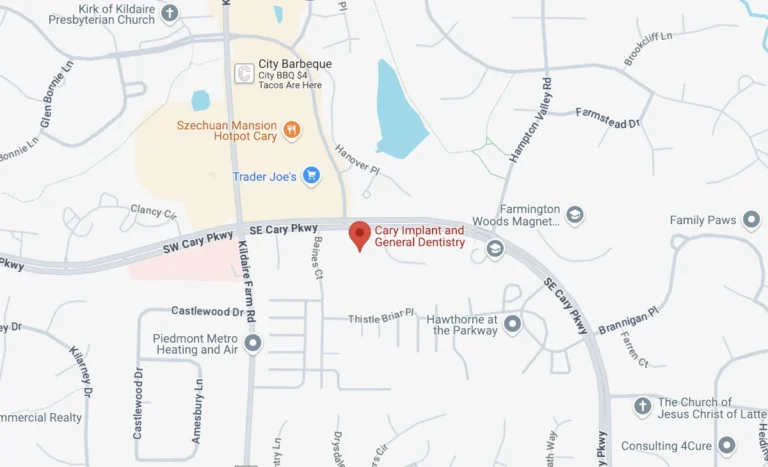A root canal treats infections or inflammation inside the tooth caused by decay, trauma, or cracks.
Root Canal Treatment
-
Cost
The cost varies by case complexity; we’ll provide a full estimate during your consultation and help with insurance processing.
Office Fees -
Procedure Duration
Treatment usually takes 1–2 visits, each lasting 60 to 90 minutes depending on the tooth and extent of the infection.
Schedule Online -
Pain Level
We use modern techniques, local anesthesia, and optional sedation to keep the procedure as painless as possible.
Sedation Dentistry
Our Root Canal Dentist in Cary, NC is Here to Help!
When a tooth becomes severely decayed or infected, a root canal may be the best way to save it. Rather than removing the entire tooth, this procedure removes the infected pulp inside, disinfects the root canals, and seals the space to prevent further damage. It’s a reliable treatment that stops pain at the source and preserves your natural smile. Thanks to advancements in modern dentistry, root canals today are efficient, comfortable, and highly effective.
01.
Process of Root Canal Treatment
1. Initial Consultation
We assess your symptoms, take X-rays, and determine if a root canal is needed to treat the infection.
2. Numbing and Preparation
Local anesthesia is applied to ensure your comfort. If needed, we offer sedation to help you relax.
3. Pulp Removal
The infected or damaged pulp inside the tooth is carefully removed, and the canals are cleaned and disinfected.
02.
What Are the Next Steps?
4. Sealing the Tooth
The cleaned canals are filled with a biocompatible material and sealed to prevent future infection.
5. Crown or Filling Placement
In most cases, a crown is placed over the tooth to restore its strength and function.
6. Follow-Up Care
You’ll receive instructions for at-home care and return for follow-ups to ensure healing is complete.
FAQ
-
What is a root canal designed to treat?
-
How does root canal therapy preserve the tooth?
By removing the infected pulp and sealing the canals, the tooth structure remains intact and fully functional.
-
What symptoms suggest I might need a root canal?
Persistent pain, sensitivity to hot or cold, swelling, or a darkened tooth may signal infection requiring a root canal.

